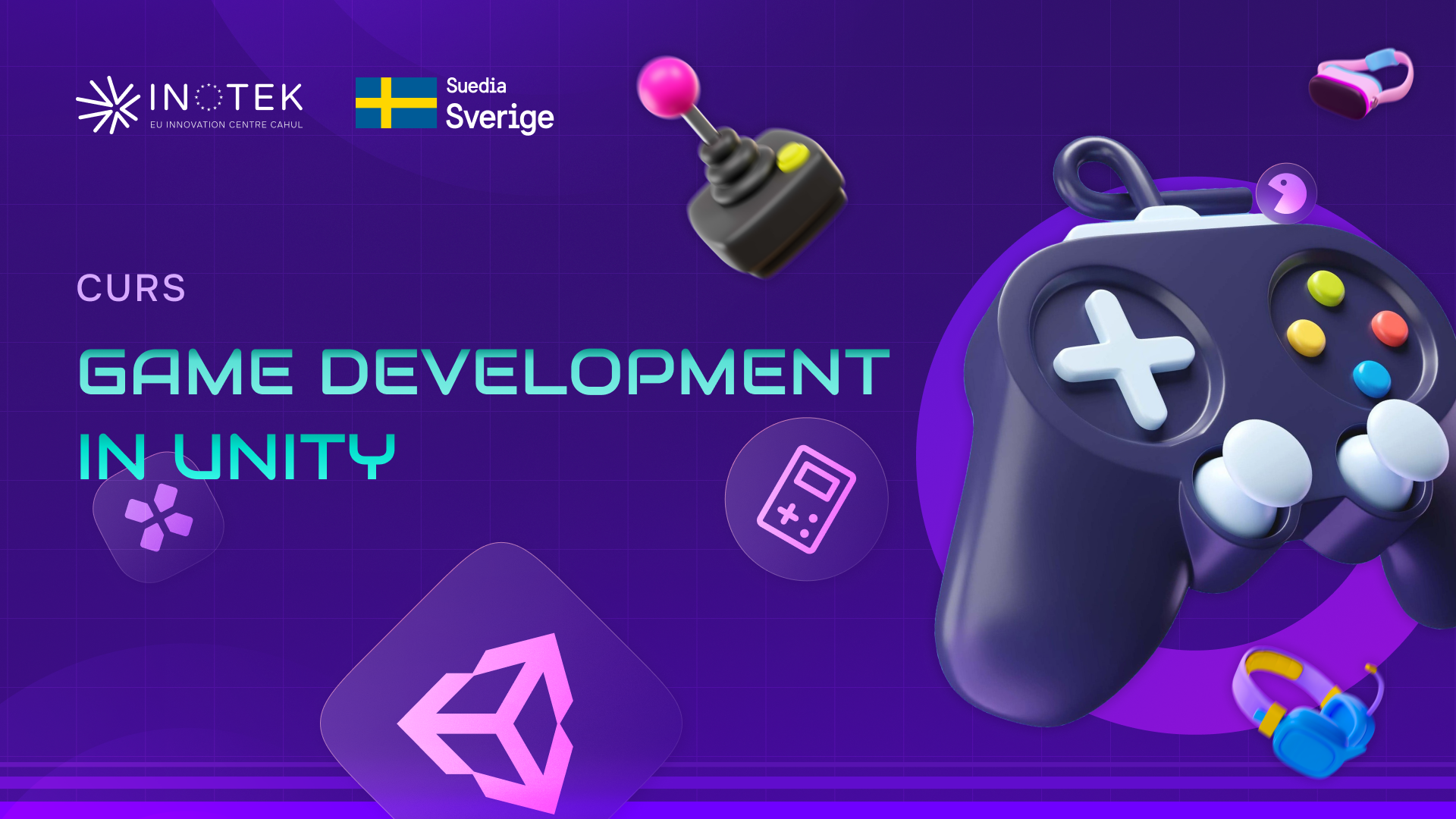Overview
This intensive course is designed for those who want to learn the basics of video game development using Unity, one of the world's most popular game engines. Over 40 hours, you will acquire essential knowledge about designing, programming, and implementing games. Whether you are a gaming enthusiast, a beginner in game development, or a freelancer exploring new opportunities, this course provides all the tools you need to create a fully functional game.
The course is structured to offer a balanced combination of theory and practice, allowing you to immediately apply your knowledge in developing the final project – your own video game.
Who is this course for?
- Beginners in game development who want to understand the basics of Game Development.
- Gaming enthusiasts looking to transform their creativity into real projects.
- Students or graduates in IT, digital arts, or multimedia who want to develop practical skills.
- Professionals from other creative fields aiming to understand the game development process to collaborate effectively with gaming teams.
Why is this course relevant?
The video game industry is constantly growing, offering immense opportunities for both professional developers and indie creators. Unity is the global leader in video game development, powering over 50% of the games on the market.
This course offers you:
- A comprehensive and accessible introduction to video game development.
- The chance to learn through practice by creating your own video game.
- Essential skills to kickstart a career or develop personal projects.
Final Outcome
By the end of the course, you will have your own fully functional video game and an understanding of the fundamentals of game development in Unity. These skills will help you continue creating games independently or start a career in the gaming industry.
Course plan
- Overview of Unity: interface, project structure, key components.
- Introduction to C#: variables, conditional structures, simple loops.
- Creating and manipulating 3D objects.
- Configuring Rigidbody and Collider components.
- Managing collisions and triggers.
- Simulating movement and physical interactions.
- Configuring input for keyboard and mouse.
- Implementing character and camera movement.
- Introduction to vectors for movement.
- Creating user interfaces (UI): menus, progress bars, notifications.
- Integrating and managing sounds (audio effects and music).
- Practical exercise: developing a functional menu.
- Introduction to Mecanim animations.
- Creating animations for characters and objects.
- Using particles for visual effects (smoke, fire, explosions).
- Game Design principles: mechanics, storytelling, objectives.
- Implementing a scoring system and simple game mechanics.
- Debugging: identifying and fixing common errors.
- Optimizing game performance.
- Exporting the game for PC and Android.
- Developing a simple game using all the taught modules.
- Project presentation and feedback collection.

 Level
Level  Term
Term  Days
Days  Program
Program  Present
Present  Location
Location  Language of instruction
Language of instruction 
